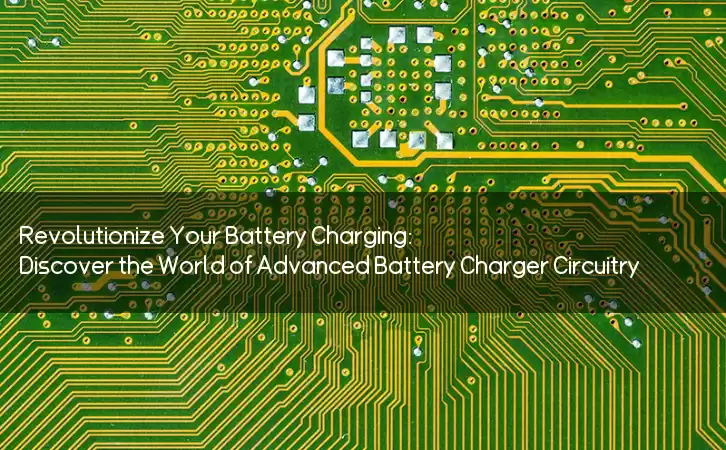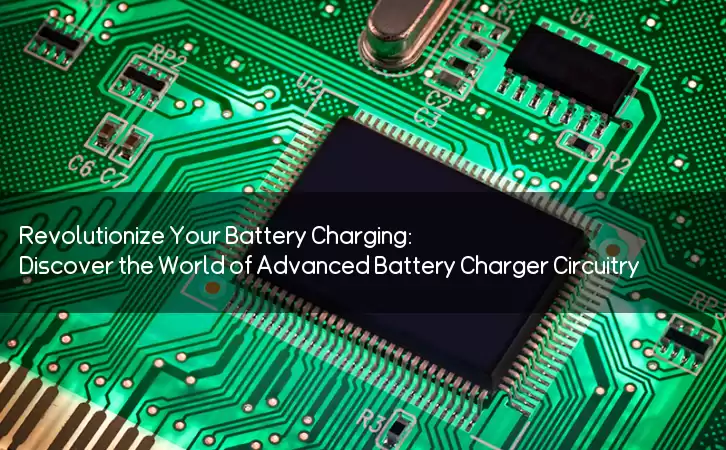Information Center
Revolutionize Your Battery Charging: Discover the World of Advanced Battery Charger Circuitry
Published:2023-09-06 10:34:09 Author:Green WCND Views:152Battery Charger Circuit

A battery charger circuit is an electronic device that is used to charge rechargeable batteries such as lead-acid, nickel-cadmium, and lithium-ion batteries. These circuits are designed to provide a controlled amount of current to the battery to avoid overcharging, which can damage the battery, decrease its life, and even cause a fire.

The most common battery charger circuit is the constant current-constant voltage (CC-CV) charger. This type of circuit delivers a constant current to the battery until it reaches a specific voltage, and then switches to a constant voltage mode to finish the charging process. CC-CV chargers are efficient, reliable, and easy to design, making them ideal for a wide range of applications.
There are different types of battery charger circuits for different types of batteries. For example, lead-acid batteries need a charger that can provide a higher charging current than nickel-cadmium batteries. Lithium-ion batteries require a charger that has a more complex control circuit to ensure safe and efficient charging.
A battery charger circuit typically consists of several components, including a transformer, rectifier, filter, and regulator. The transformer converts the AC voltage from the wall outlet into a low AC voltage suitable for charging the battery. The rectifier converts the AC voltage into a pulsating DC voltage, and the filter removes the unwanted high-frequency noise from the rectified voltage. The regulator controls the output voltage to ensure a constant current or voltage during charging.
The charging time of a battery depends on its capacity and the charging current provided by the charger circuit. A faster charging time can be achieved by increasing the charging current, but this can also reduce the battery life. A slower charging time, on the other hand, can prolong the battery life but may not be practical for certain applications.
Some battery charger circuits come with additional features such as temperature sensing, which can prevent overcharging if the battery temperature exceeds a certain threshold. Some circuits also have a trickle charge feature that maintains the battery at a certain level of charge when it is not in use.
In conclusion, a battery charger circuit is an essential electronic device for charging rechargeable batteries. These circuits provide a controlled current or voltage to the battery, ensuring safe and efficient charging. There are different types of battery charger circuits available depending on the type of battery being charged and the desired charging time. With the right charger circuit, you can extend the life of your batteries and ensure reliable performance for years to come.
Power Adapter Design and Customization Guide for Portable Electric KettlesI. Common Design Types for Portable Electric Kettle Power AdaptersPortable electric ke···
I. Common Design Types of Power Adapters External Independent Type (Most Common) Design: A standalone adapter (e.g., "black brick") connected to the p···
Handheld Vacuum Cleaner Power Adapter Selection GuideIntroductionHandheld vacuum cleaners have become a mainstream tool for household cleaning due to their port···
Drill Power Adapter Selection Guide.drill-container { font-family: Arial, sans-serif; line-height: 1.6; max-width: 800px; margin: 0 auto; padding: 20px; } .dril···





